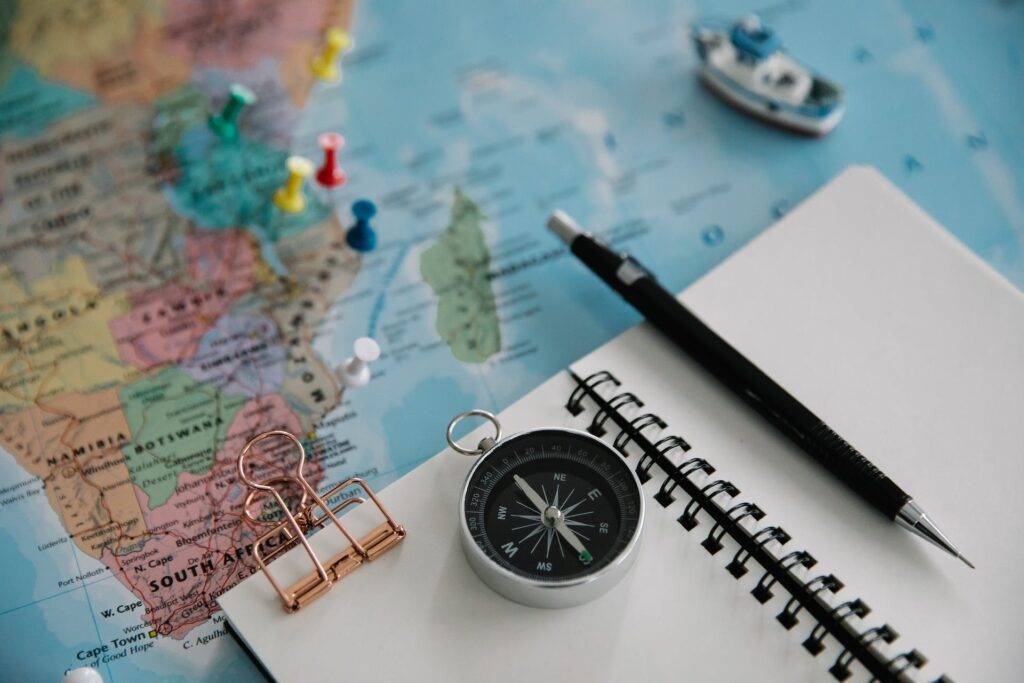This post may contain affiliate links, and Sweet Lyfe Daily may earn a small commission from purchases made through link at no additional cost to you. As an Amazon Associate Partner, Sweet Lyfe Daily may earn a commission from qualifying purchases. Please do your own research before making any purchases. Please click to read our full Disclaimer. Thank you for your support.
Table of Contents
Dear Sweet Friends,
Are you dreaming of a fantastic vacation but don’t know if you can afford it? The good news is that you can make your dream vacation a reality with planning and budgeting without breaking the bank. In this blog post, we will explore some key tips to help you save and plan for a memorable budget friendly vacation.

Before diving into the tips, let’s begin by understanding how to plan a budget-friendly vacation. It all starts with effective budgeting, which involves considering various factors and expenses.
Things to Consider When Budgeting for Vacation
A. Destination: The first step in budgeting for your vacation is choosing the right destination. Different locations come with varying price tags. Research potential destinations and estimate the costs associated with each, such as accommodations, food, and activities.
B. Duration: The length of your vacation can significantly impact your expenses. A longer trip will generally cost more than a shorter one. Consider the number of days you can afford to be away and plan accordingly.
C. Accommodation: Your choice of accommodation can significantly affect your budget. Options range from luxury hotels to budget-friendly hostels, Airbnb, or vacation rentals. Decide which type of accommodation aligns with your budget.
D. Transportation: Depending on your destination, you may need to account for flights, train tickets, rental car or gas for a road trip. Research transportation options and compare prices to find the most budget-friendly choice.
E. Daily Expenses: Plan for daily expenses, including meals, activities, and any unexpected costs. Allocate a specific amount for each day to ensure you stay within your budget.
F. Travel Insurance: It’s wise to have travel insurance to protect yourself against unexpected circumstances, such as trip cancellations or medical emergencies. Include this expense in your budget.
G. Souvenirs and Extras: Remember to budget for souvenirs and any extra activities or experiences you’d like to enjoy during your vacation.
H. Emergency Fund: Set aside a small emergency fund within your budget to cover unforeseen costs. Having an emergency fund will give you peace of mind during your trip.
Sweet Hack: Plan in advance: Start researching the points I detailed above in advance. If I am planning for a summer trip, I usually start my research as early as October/November of the previous year. Advance planning allows me time to space out my research, which makes finding this information less cumbersome and overwhelming.
Planning in advance also allows you to pin down the best travel dates to schedule your vacation, so you can ask for this time off as soon as the annual vacation calendar is circulated, which tends to be around the beginning of the year. I usually look at websites like TripAdvisor.com to see reviews of the hotel and other details reviewers may post about their trip and the destination. Some reviewers may offer insight on key factors you should consider while planning and budgeting for a trip.
4 Tips to Reduce Travel Expenses/Costs
Now that you’ve considered the key factors in budgeting for your vacation, let’s explore four tips to reduce travel expenses and costs.
(1) Find Cheap Flights and Accommodation
a. Book in Advance: Planning your trip well in advance allows you to take advantage of lower prices on flights and accommodations. Airlines and hotels often offer discounts for early bookings.
b. Use Fare Comparison Websites: Websites like Kayak, Skyscanner, and Google Flights make comparing flight prices from various airlines easy. Use these tools to find the best deals.
c. Be Flexible with Dates: If your schedule allows, be flexible with your travel dates. Flights and accommodations are often cheaper on weekdays or during the off-peak season.
d. Consider Alternative Airports: Sometimes, flying to a nearby airport instead of your primary destination can be more cost-effective. Be open to exploring nearby options.
e. Join Loyalty Programs: Many airlines and hotel chains have loyalty programs that offer discounts and rewards to their members. Sign up for these programs to save on future travel.
f. Opt for Vacation Packages: Some travel agencies offer all-inclusive packages that bundle flights, accommodation, and activities at a lower price than booking each separately.

(2) Save Money on Meals
a. Eat Locally: Dining at local restaurants or street vendors can be more affordable than eating at touristy spots or in a hotel or resort. You’ll also get to experience the authentic flavors of your destination.
b. Pack Snacks: Bring snacks from home to munch on during your travels, reducing the need to buy expensive airport or convenience store snacks.
c. Choose Accommodations with Kitchen Facilities: Consider booking accommodations with kitchen facilities to prepare your meals. Choosing accommodations with kitchen facilities can save you a significant amount on dining expenses. Once you get to the hotel, inquire about nearby food marts/shops or markets to stock up on water and other food items as soon as you arrive; this goes for when staying in a hotel or a resort. Water and other food items at these local shops are much cheaper than what is sold or offered in the hotel or resort. Finding these budget-friendly alternatives also alleviates the temptation to use items in the mini-bar, which are usually overly priced!
Sweet Hack: I have a few hacks regarding saving money on food. I pack sandwiches, quart-size ziploc bags, or reusable lunch bags. These come in handy in a few ways: (1) If my hotel stay includes breakfast. I would create a lunch or snack-to-go from the hotel breakfast offering, whether a sandwich, chips, granola, or a piece of fruit, to have handy while on an excursion outside the hotel or resort. (2) If I have leftovers after eating at a restaurant, it is a spill-proof way to secure leftovers that you can have later in the day, with no food waste, and you save some money while at it.

(3) Optimize Activities and Entertainment
a. Prioritize Free and Low-Cost Activities: Research and plan your itinerary to include free or low-cost activities and attractions. Many cities offer museums, parks, and cultural experiences that won’t break the bank. Opt for a self-guided tours of your destination rather than the pricey alternatives offered by the tour vendors. Also, check if your destination has freelanced tour guides who offer tours at a fraction of the price.
b. Look for Discounts and Deals: Check for discounts or deals on tourist passes or city cards that provide access to multiple attractions at a reduced price.
c. Take Advantage of Student or Senior Discounts: If applicable, take advantage of student or senior discounts at museums, theaters, or other attractions. Don’t forget your ID!
d. Book Ahead: Pre-book tickets to popular attractions to avoid long lines and sometimes get better rates. Booking ahead can also help you stick to your schedule and budget.
(4) Minimize Transportation Costs
a. Use Public Transportation: In many destinations, public transportation is not only cost-effective but also a convenient way to get around. Research transportation options before your trip.
b. Walk or Bike: Exploring a city on foot or by bike can be an enjoyable and budget-friendly way to see the sights. It’s also great for staying active while on vacation.
c. Carpool or Ride-Sharing: If public transportation isn’t an option, consider carpooling with fellow travelers or using ride-sharing services to split costs.
d. Plan Your Route: Create an itinerary that minimizes unnecessary travel within your destination. This will save both time and money.

How to Budget for Vacation: 4 Methods to Avoid Debt
Now that you have a better understanding of how to reduce travel expenses let’s explore four practical budgeting methods for your vacation to ensure you don’t accumulate debt.
(1) Budget Plan-Start here
a. Set a Clear Budget: Determine the total amount you’re willing to spend on your vacation and break it down into different categories (flights, accommodation, food, activities, etc.). Having a clear budget will help you stay on track.
b. Open a Separate Savings Account: Consider opening a dedicated savings account for your vacation fund. This account will keep your travel funds separate from your regular finances and make it easier to monitor your progress.
c. Create a Timeline: Establish a timeline that outlines when you need to reach specific savings goals. Tracking your saving goals will help you track your progress and stay motivated.
d. Cut Unnecessary Expenses: Identify areas where you can cut unnecessary spending in your daily life. For example, reduce dining out, cancel unused subscriptions, or limit impulse purchases.
(2) Earmark a Certain Amount to Save Each Month
a. Calculate Monthly Savings: Divide your total vacation budget by the number of months until your trip. This calculation will give you a clear monthly savings goal.
b. Automate Savings: Set up automatic monthly transfers from your primary bank account to your vacation savings account. This process ensures you consistently save for your trip.
(3) Adjust Your Lifestyle
If your monthly savings goal is challenging, consider making adjustments to your lifestyle, such as cooking at home more often, biking to work, or finding cost-effective entertainment options.
(4) Use Credit Card Points
a. Utilize Reward Credit Cards: If you have a credit card that offers travel rewards or cashback, use it for your everyday expenses. Accumulate points or cashback that can be applied to your travel expenses.
b. Redeem Points Strategically: Once you’ve accrued enough points, redeem them strategically. This hack can help cover the cost of flights, accommodations, or other travel-related expenses.
c. Be Cautious with Credit: While using credit cards can be a great way to earn rewards, be cautious not to accumulate high-interest debt. Pay your credit card balances in full each month to avoid interest charges.
d. Monitor and Optimize Rewards: Regularly review your credit card rewards program and consider switching to cards with better benefits if they align with your travel goals.
Last Sweet Words
Planning and budgeting for a vacation doesn’t have to be a daunting task. By considering certain factors, such as reducing travel expenses, and following effective budgeting methods, you can turn your dream vacation into a reality without accumulating debt. With careful preparation and financial discipline, you’ll be well on your way to a budget-friendly and memorable adventure. So start budgeting for your vacation today, and make those travel dreams come true!
Happy Travels!
Sweet Lyfe Daily
Comment Below: Share with us your next dream destination and any budgeting tips for travel





